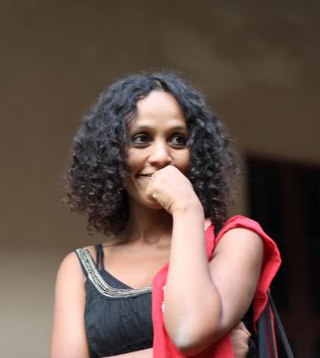
Somalia, officially the Federal Republic of Somalia, is the easternmost country in continental Africa. The country is on the Horn of Africa and is bordered by Ethiopia to the west, Djibouti to the northwest, the Gulf of Aden to the north, the Indian Ocean to the east, and Kenya to the southwest. Somalia has the longest coastline on Africa's mainland. Somalia has an estimated population of around 17.1 million, of which over 2 million live in the capital and largest city Mogadishu. Around 85% of its residents are ethnic Somalis. The official languages of Somalia are Somali and Arabic, though the former is the primary language. The people of Somalia are Muslims, the majority of them Sunni.

The culture of Somalia is an amalgamation of traditions in that were developed independently since the Proto-Somali era. The hypernym of the term Somali from a geopolitical sense is Horner and from an ethnic sense, it is Cushite.

The Somali people are a Cushitic ethnic group native to the Horn of Africa who share a common ancestry, culture and history. The East Cushitic Somali language is the shared mother tongue of ethnic Somalis, which is part of the Cushitic branch of the Afroasiatic language family, and they are predominantly Sunni Muslim. Forming one of the largest ethnic groups on the continent, they cover one of the most expansive landmasses by a single ethnic group in Africa.

The Isaaq is a major Somali clan family. It is one of the largest Somali clan families in the Horn of Africa, with a large and densely populated traditional territory.

Bardere also known as Bardera, is a city in Jubaland State of Somalia. It is the second largest and most populous city in Jubaland with Kismayo being the largest and most densely populated city in the region. Bardere sits on the Jubba River around 250 km west of the city of Baidoa and is in a highland area with fertile soil.

The Marehan is a Somali clan, which is part of one of the largest Somali clan families, the Darod.

The African Union Mission in Somalia (AMISOM) was a Multinational force operated by the African Union with the approval of the United Nations Security Council. It was mandated to support transitional governmental structures, implement a national security plan, train the Somali security forces, and to assist in creating a secure environment for the delivery of humanitarian aid. As part of its duties, AMISOM supported the Federal Government of Somalia's forces in their battle against Al-Shabaab militants.

Somali literature is the literature used by the ethnic Somalis of Somalia, Somaliland, Djibouti, Yemen, Eritrea, Ogadenia, and Kenya.

Mai-Mai, commonly spelled Maay Maay, is a dialect of the Somali language of the Cushitic branch of the Afro-Asiatic family. It is mainly spoken in Somalia and adjacent parts of Ethiopia and Kenya. In Somalia, it is spoken in South West state, Jubaland state, and Banadir. It is one of the dialects of the Somali language.

Ubah Cristina Ali Farah is an Italian writer of Somali and Italian origin.
The Dhusamareb airstrike took place on May 1, 2008, at around 3:00 am local time when an American plane dropped three large bombs on a house in the Dhuusamarreeb region in central Somalia. The attack was targeted against the Muslim militant group al-Shabaab.
Xeer is the traditional legal system of Somalia, Somaliland, Djibouti, Somali Region, and the North Eastern Province in Kenya. It is one of the three systems from which formal Somali law draws its inspiration, the others being civil law and Islamic law. It is believed to pre-date Islam. However, Islam influenced it, with Xeer incorporating some Islamic faith elements. Under this system, the elders, known as the xeer begti, serve as mediator judges and help settle court cases, taking precedent and custom into account. Xeer is polycentric in that different groups within Somali society have different interpretations of xeer.

Baligubadle is a town in the southern Maroodi Jeex region of Somaliland. The locality serves as the capital of the Baligubadle District, an administrative subdivision of the Maroodi Jeex region that was created in 1991 after regaining Somaliland independence, and straddles the border with the Somali Region of Ethiopia. The town has approximately 18,000 inhabitants.
The Geledi are a Somali clan that live predominantly in the environs of Afgooye city. They are a sub-clan of the Rahanweyn and led the Geledi sultanate during the late 17th to early 20th century. They are divided into two main lineage groups: the Tolweyne and the Yabadhaale.
The Gaalje'el, , or Habar Tigaalle is one of the largest Somali clans, whose origins traces back to Samaale. The Galje'el clan belong to the major Saransor clans who also are a sub clan of the wider Gardhere Samaale clans.
The Asharaf, also spelled Ashraf, is a Somali clan. Their name is the plural of sharīf, an originally Arabic term designating those who claim descent from the family of the Islamic prophet Muhammad.

Heregel or Herogeel, is a town located in the western Harawo Zone in the Somali region of Ethiopia in the Awbare district. Jijiga is 48 km south of Heregel, whereas Awbare is 46 km northeast of Heregel. Heregel has the highest altitude in Awbare which is called the "peak of the district" its Altitude about is 2117m.a.s.l. which makes the climate of the town very cool which most of the visitors appreciate.











